-
 Art of Wellness Acupuncture & Traditional Chinese Medicine (TCM)11704 Wilshire Blvd, Suite 295, Los Angeles, CA, 90025
Art of Wellness Acupuncture & Traditional Chinese Medicine (TCM)11704 Wilshire Blvd, Suite 295, Los Angeles, CA, 90025
myartofwellness@gmail.com310-451-5522 Office Hours
MonClosedTue7:30 am --4 pmWed7:30 am --4 pmThu7:30 am -- 4 pmFri7:30 am -- 4 pmSat7:30 am -- 4 pmSunClosedOur office opens from Tuesdays to Saturdays 7:30 am to 4 pm, will be closed on Memorial day, Independent day, Labor day, Thanksgiving day, Christmas and New year.
-
Recent Posts
- How to Treat Dysautonomia With Acupuncture and TCM
- How to Treat Myofascial Pain Syndrome With Acupuncture and TCM
- How to Treat Costochondritis With Acupuncture and TCM
- How to Treat Ankylosing Spondylitis With Acupuncture and TCM
- How to Treat Gastroparesis With Acupuncture and TCM
- How To Treat Sleep Apnea With Acupuncture and TCM
- How To Treat Baker’s Cyst With Acupuncture and TCM
- How to Treat Sinusitis With Acupuncture and TCM
- How To Treat Sjogren’s Disease With Acupuncture and TCM
- How to Treat Raynaud’s Syndrome With Acupuncture and TCM
- How to Treat Autoimmune Disorders With Acupuncture and TCM
- Chinese New Year 2024 Year of the Dragon
- Sign up to receive news and updates and get my free report:“The Top 10 Reasons to Try Acupuncture”

Circulation
How To Treat Amnesia With Acupuncture and TCM
By Qineng Tan, L.Ac., Ph.D. & Xiaomei Cai, L.Ac., Ph.D.
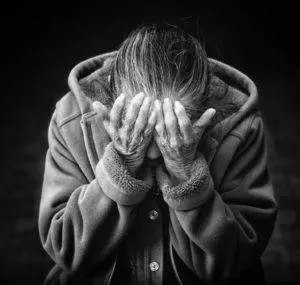
Are you experiencing unusual forgetfulness? Amnesia due to an injury or a brain disease like Alzheimer’s can cause loss of memory. TCM and acupuncture offer an alternative treatment for problems with memory loss due to different types of amnesia or dementia related to brain diseases like Alzheimer’s or Parkinson’s.
Amnesia is often depicted in stories as the sudden loss of one’s memory, or even their whole identity, due to a traumatic accident of some sort. That kind of dramatic memory loss is rare in real life. Difficulty remembering events from one’s past is called retrograde amnesia. The most common type of amnesia, however, is anterograde amnesia, which causes short-term memory problems. People with anterograde amnesia may be able to remember facts they learned in school, and how to do things like play a sport or an instrument, but they have trouble remembering what they did earlier this morning, or what day of the week it is. Anterograde amnesia can have a serious impact on a person’s life, as it can make it difficult to retain new information, learn new skills, or form relationships with new people.
Conditions like Alzheimer’s and Parkinson’s can affect memory and cause other types of cognitive impairment. Memory problems can be a part of dementia; the term “dementia” encompasses other kinds of cognitive decline in addition to memory loss. Being more forgetful is considered a common aspect of mild cognitive impairment (MCI). MCI is the term for changes in thinking patterns that occur in older adults, sometimes as a precursor to more serious dementia. “Amnestic MCI” pertains to short-term memory problems like forgetting recent events, appointments, and facts or names one might have been able to call up easily in the past.
People suffering from depression and/or anxiety, and those with PTSD often experience short-term memory loss, forgetfulness, or a sense of confusion.
At this point, there is no real medical solution for amnesia or other kinds of memory loss. There are no treatments that cure or reverse dementia or Alzheimer’s. Medications like cholinesterase inhibitors and memantine may help to slow the breakdown of certain neurotransmitters–brain chemicals that relate to memory and learning capacity. Cognitive therapy can help people work on their memory skills and teach them coping mechanisms, like using various forms of reminders and creating stable routines that help them continue to perform their daily tasks.
Research has shown that TCM and acupuncture treatment have a positive impact on cognitive impairment, as measured both by memory assessments, as well as the impact on neurotransmitter activity in the brain.
Top 5 Types of Amnesia
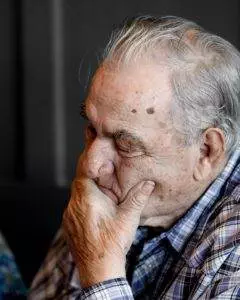
Amnesia is classified into two main categories: neurological amnesia and functional amnesia. Neurological amnesia is caused by some type of physical problem with the brain, either due to an injury, a stroke, a tumor, or diseases like Alzheimer’s and Parkinson’s. Amnesia could also result from an infection that affects the brain, such as HIV, Lyme disease, or encephalitis. Functional amnesia is caused by some psychologically damaging event that causes a person to “block out” memories. This type of amnesia is considered a psychiatric disorder.
- Retrograde amnesia – this type of amnesia occurs after a traumatic event or injury to the brain. It affects memories that were stored before the inciting event, but not necessarily the entire history of memories. Usually the events leading up the trauma are the ones that are compromised.
- Anterograde amnesia – this type of amnesia causes short-term memory loss. While a person can still pay attention, they have trouble retaining new information or forming new memories related to current events.
- Transient global amnesia – this type of amnesia incorporates both retrograde and anterograde types of memory loss, but only for a short period of time (anywhere from a few to 24 hours). This temporary loss of memory usually occurs in older people, perhaps because of some loss of blood flow to the brain (ischemia) or loss of oxygen to the brain (hypoxia), or even because of a seizure.
- Dissociative amnesia – a mental health disorder in which a person blocks out memories or certain facts about their life after an emotionally traumatic event. This is sometimes known as “selective amnesia.”
- Infantile amnesia – (or childhood amnesia) this term refers to the fact that most people do not have memories from the early years of their life.
Other factors that can affect memory to the extent that they cause amnesia are severe alcoholism (when a person gets “blackout drunk” and cannot remember what has happened), severe nutritional deficiencies, thyroid issues, or exposure to radiation. Some drugs, like benzodiazepines, or anti-epileptic medications, can cause memory loss while the drug is in effect. Electroconvulsive Therapy (ECT) is sometimes used in psychiatric treatment to induce selective amnesia.
Sometimes amnesia is temporary, such as after an injury. Once the brain heals, memory will often be restored. Amnesia due to brain damage, such as after a stroke, may be permanent, while amnesia caused by a degenerative disease like Alzheimer’s, may be progressive in nature. Acupuncture treatment can be beneficial for people with various types of memory loss, both by helping people heal after brain trauma, and helping to protect the brain and other organs from degeneration due to aging or other kinds of disease.
Can Acupuncture Help Amnesia?
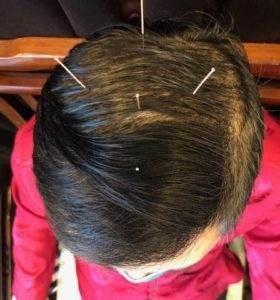
TCM theory takes a different view of the organ systems of the body than conventional modern medicine does. Whereas memory loss, cognitive impairment, amnesia, and dementia are seen as primarily having to do with the brain, in TCM we see problems with memory and cognition as also being related to the function of the kidneys, liver, spleen, and heart. The kidneys, in particular, are believed to support the brain, so if the kidneys are weak, or congested with phlegm, this can lead to amnesia. The buildup of phlegm in the body can block the smooth flow of qi and blood, leading to a lack of nourishment to the brain. It can also block the channels of communication between the heart and the brain. This concept of phlegm is roughly analogous to the conventional medical view of how heart disease arises from the buildup of cholesterol clogging the arteries. TCM treatment for amnesia and dementia will often focus, then, on the clearing of phlegm from the channels, and working to resolve other conditions, like high blood pressure or diabetes, that are contributing to the problems of memory loss and cognitive deficits.
Herbs have been used for many centuries in TCM to help improve memory function and stave off cognitive decline. In recent years, scientific research has begun to confirm that these herbs can work to reduce neurodegeneration. TCM herbal formulations have the benefit of being highly customizable, while being relatively free of potential negative side effects. Acupuncture has been demonstrated to help patients recover neurological function after traumatic brain injuries.
Top 5 Tips for Improving Your Memory With TCM
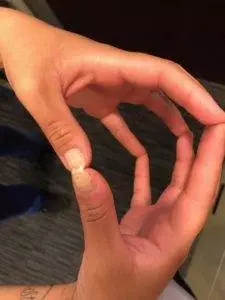
Stimulating more blood flow to the brain can help boost your memory. Try these simple home remedies to help promote better cognitive function.
- Acupressure Points for Memory – Find the tender spot right in the center of the top of the head. Stimulate this point, and the four points that can be found one inch away from the center in each direction: right, left, front, and back (see photo above). Apply gentle but deep, downward pressure with your finger to each of these five points 50-60 times each day.
- Stimulate the Fingertips and Tips of the Toes – Hold the hands so that the tips of the fingers and thumbs touch. Gently press or stroke the corresponding fingers together, each stimulating the other, up to a hundred times. Practice daily. Similarly, gently press/stroke the tip of each toe, up to a hundred times per day.
- Keep the Neck Supported – when the neck is stiff or out of alignment, blood flow to the head and brain may be compromised. If you have neck pain or tightness, be sure to address it adequately with acupuncture, a supportive pillow and appropriate sleeping position, and gentle exercise.
- Dry Brush the Scalp – use a brush or comb to stimulate the whole scalp every day. This will help bring good blood flow to the head.
- Massage the Ears – gently knead the whole outer ear, especially the ear lobe, until it is warm and red. This will stimulate many beneficial acupressure points located on the ear.
Acupuncture Near Me for Memory Loss
Perhaps someone close to you has begun to show worrying signs of cognitive decline or loss of memory. People who are suffering from amnesia and dementia associated with degenerative brain diseases like Alzheimer’s can benefit from an integrative approach that includes acupuncture and herbs.
*This article is for education from the perspective of Traditional Chinese Medicine only. The education provided by this article is not approved by FDA to diagnose, prevent, treat and cure human diseases. It should not stop you from consulting with your physician for your medical conditions. Traditional Chinese Medicine is based on Qi, which is an invisible force that usually cannot be observed by modern science. Because science focuses on testing ideas about the natural world with evidence obtained through observation, these aspects of acupuncture can’t be studied by science. Therefore acupuncture and Chinese herbs are often not supported by double-blind, randomized trials, and they are considered alternative medicine therapies in the United States.
How To Treat ED With Acupuncture and TCM
By Qineng Tan, L.Ac., Ph.D. & Xiaomei Cai, L.Ac., Ph.D.
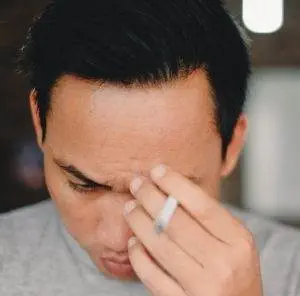
Let’s face it: most men have probably had trouble getting hard on occasion, but if it’s happening 50% of the time, or more often, then it may be a sign of men ED, or erectile dysfunction. ED refers to the inability to get or maintain an erection, making it difficult to have sexual intercourse. Acupuncture and TCM offer a natural solution for low sex drive and reproductive health problems, without over the counter ED pills.
In the past few decades, this condition, which used to be referred to as “impotence,” has come to be perceived as a men’s health issue or a men’s fitness issue that can be treated medically, rather than a personal problem. While it’s great that men can get help from doctors for this condition without embarrassment or shame, ED medications may not solve the problem for everyone. Stress, hormones, nutrition, exercise, emotions, and relationship dynamics all play a role in ED. ED can have a serious impact on a man’s quality of life, as it affects self-esteem, romantic relationships, and sperm count, and fertility.
It is estimated that about 30 million men in the U.S. experience erectile dysfunction (ED). By age 60, over 40% of men will probably experience ED. While ED drugs and over the counter ED pills help some men with ED symptoms, many men cannot use these medications because they interfere with others that are commonly used to treat heart disease. Acupuncture and TCM provide an alternative treatment for ED that can help men with this issue.
Top 10 Causes of ED
ED is a complex problem, which can involve both physical and mental components. A physical problem that causes a man to experience ED a few times may lead to emotional stress around sex and low sex drive, making the problem worse. Because the brain and hormones contribute so vitally to arousal and erection, sometimes depression, anxiety, or interpersonal feelings are the main cause of the issue. Some of the most common physical causes of ED include:
- Heart problems, high blood pressure, clogged arteries, high cholesterol
- Diabetes
- Obesity
- Use of certain prescription medications (antihypertensives, antidepressants)
- Neurological conditions, such as Parkinson’s disease or Multiple Sclerosis
- Alcoholism or excessive consumption of alcohol
- Smoking cigarettes/tobacco
- Prostate problems like BPH (enlarged prostate), or prostate cancer
- Lack of sleep, sleep disorders
- Low testosterone
Sometimes erectile dysfunction is the reason men discover that they have a heart condition or diabetes that they didn’t realize they had. When high cholesterol causes plaque to build up in the blood vessels, it’s not only the heart that is affected. Atherosclerosis (narrowing of the arteries) can also affect a man’s ability to get an erection by restricting blood flow to the penis. Inability to maintain an erection can be a sign that a man has hypertension.
What Is the Treatment for ED?
The most common medical treatment for men with ED are PDE-5 medications (like Viagra, Cialis, or Levitra), which work to dilate the blood vessels that supply blood to the penis. These ED drugs lower the blood pressure, which is why they cannot be used in conjunction with some other medications, including nitroglycerin or Imdur. If a man were to take both his ED pills and these medications, it could cause dangerously low blood pressure.
Some men experience side effects of taking these ED meds, including: headaches, blurred vision, dizziness, hot flushes, muscle pain, and diarrhea. In rare cases, men may have a painful erection that lasts longer than four hours (priapism), which can require medical treatment and/or cause permanent damage. If necessary, a doctor may numb the penis and use a needle to drain the blood that is trapped there, or use decongestant medications to help relieve the swelling. Other forms of therapy for ED include penile implants and penile injections. TCM acupuncture treatment for ED does not involve any needles inserted into the penis itself.
How Can Acupuncture Help ED?

According to TCM theory, ED is classified as a Jin Wei disorder and can follow one of a few patterns:
- Liver qi stagnation
- Blood stasis
- Kidney deficiency
TCM also acknowledges that stress, emotional and mental health disturbances are often a primary cause of ED, and seeks to incorporate counseling and awareness-building, both with the patient, and with the patient’s partner, if applicable. Sessions with a TCM provider usually involve plenty of discussion and feedback; patients feel heard and understood, which can go a long way towards relieving anxiety surrounding the ED or other sexual disorders.
TCM treatment for ED will include both acupuncture and herbs, which, combined, help to address the weakness or blockages that have developed around the liver and kidneys, strengthening the liver qi, relieving stagnation, and clearing dampness.
One study showed that, after a course of treatment including 3-5 acupuncture treatment sessions and daily herbal supplementation, almost half of the men reported satisfaction with the results.
Another study found that about two-thirds of the men who received TCM treatment reported feeling that they were “cure,” while the other third reported improved erections, but still felt that they needed more help. The group who received placebo treatment did not report improvement.
Top 5 Tips for ED Men’s Fitness

The desire to overcome ED and get your sex life back on track can be a great motivation to clean up your diet and get rid of habits you know have been holding you back from peak men’s health. Your acupuncturist can help you plan the best diet for men to help regulate hormones, reduce cholesterol, improve circulation, boost heart health and energy.
- Eliminate alcohol, tobacco, and other recreational drugs. You may feel like these substances help you to relax and get in the mood, but on a deeper physiological level, they are compounding the problem.
- Get more exercise. Ideally, balance cardio with some weight training. Losing fat and building muscle will help to balance the hormones and increase testosterone levels.
- Take care of your mental health and emotional well-being. Foster open and honest communication about ED with your partner. Acquaint yourself with men’s and women’s health issues, so that you can care for each other with empathy.
- Reduce stress. Prioritize a balanced, healthy lifestyle. Making time for yourself through regular exercise, meditation, and healing modalities like acupuncture can help improve your performance in all other areas of your life
- Get adequate sleep. When the body doesn’t get the deep rest it needs, it can lose all kinds of functionality.
Acupuncture Near Me for ED
ED is a sensitive men’s health issue. Knowing that it’s a common problem that affects lots of other men may help a little, but if ED is becoming a sexual problem that is negatively affecting your life and relationships, it’s worth it to seek out help for erectile dysfunction. If conventional medical treatment for ED isn’t working or isn’t an option, or if you want to take a more holistic approach that will help also boost your fertility and longevity, consider acupuncture treatment for ED.
*This article is for education from the perspective of Traditional Chinese Medicine only. The education provided by this article is not approved by FDA to diagnose, prevent, treat and cure human diseases. It should not stop you from consulting with your physician for your medical conditions. Traditional Chinese Medicine is based on Qi, which is an invisible force that usually cannot be observed by modern science. Because science focuses on testing ideas about the natural world with evidence obtained through observation, these aspects of acupuncture can’t be studied by science. Therefore acupuncture and Chinese herbs are often not supported by double-blind, randomized trials, and they are considered alternative medicine therapies in the United States.
How to Treat Leiomyoma of the Uterus With Acupuncture and TCM
By Xiaomei Cai, L.Ac., Ph.D. & Qineng Tan, L.Ac., Ph.D.

Heavy bleeding, menstrual cramps, long periods? This could be a sign that a woman has leiomyoma of the uterus. Also known as uterine fibroids, leiomyomas are growths or benign tumors in or on the wall of the uterus. TCM and Acupuncture provide a natural alternative treatment that can help relieve uterine fibroid symptoms.
A leiomyoma, in general, is a growth in smooth muscle tissue. Leiomyomas can develop in any muscle tissue in the body, including that of the intestines, esophagus, and under the skin, but the most common type of leiomyoma occurs in the uterus.
Many women have uterine fibroids and aren’t aware of them. It is estimated that 60-80% of women will have leiomyomas of the uterus at some point during their reproductive years (“childbearing age” – anytime from menarche to menopause). Only about 30% of women report symptoms of fibroids to their doctor, though, because many women do not notice any signs of leiomyoma of the uterus. It is probably rare for someone to have a single fibroid tumor; usually, there are multiple tumors. Fibroids can be hereditary; if your mother had them, you may be more likely to have them, too.
Fibroid tumors can grow inside the uterus, or on the outside of the uterine walls. Sometimes they stay small, and in many cases they don’t cause problems. In some cases, though, they can grow large and press against other internal organs. Fibroids of any size can cause symptoms like painful or irregular periods, abdominal bloating, back pain, and bladder problems.
The primary sign that a woman has uterine fibroids is heavy bleeding during menstruation. In many cases, doctors will say that there is no need for medical intervention. Sometimes hormone suppressing medications are used to try to slow the growth of the tumors and reduce the period-related symptoms. In about 20% of cases, people opt for surgery to remove fibroids. Often the fibroids stop growing and may even shrink after menopause. It is extremely rare for leiomyomas of the uterus to become cancerous. However, uterine fibroids can cause women so much pain that it becomes disabling.
Fortunately, there is natural treatment for fibroids with TCM. Acupuncture and herbs are excellent modalities for helping all kinds of womens’ health issues related to the female reproductive organs. TCM doctors have been observing and treating growths in the pelvic area for many centuries. Acupuncture and herbs can help women with leiomyomas of the uterus, as well as related issues such as, PMS, endometriosis and ovarian cysts.
Top 10 Signs of Fibroids

In many–if not most–cases, women do not realize they have fibroids, either because they have no symptoms, or they don’t notice the signs as being something out of the ordinary. Some women will feel these symptoms of leiomyoma of the uterus:
- Heavy menstrual bleeding, heavy periods
- Longer periods
- Irregular menstruation, irregular periods, spotting
- Feeling pressure in the pelvic area, fullness in the belly
- Frequent urination (have to pee all the time)
- Urinary retention (having trouble peeing)
- Low back pain, hip pain
- Constipation
- Enlarged abdomen, belly bloated
- Pain during sex
The sort of heavy bleeding caused by fibroids can lead to anemia. Some fibroids can grow as large as a grapefruit, which clearly is going to cause distension in the abdominal area and put pressure on the other pelvic organs and blood vessels, potentially causing a lot of dysfunction and discomfort. But the size of a fibroid is not necessarily an indicator of whether it will cause painful periods or heavy bleeding. Even small leiomyoma of the uterus can cause pain and excessive bleeding. Emotional imbalance can also be a symptom of uterine fibroids. Leiomyomas of the uterus can cause difficulties during pregnancy, and in some cases, have a negative impact on fertility.
What Is the Treatment for Fibroids?
Sometimes a doctor may discover larger leiomyomas while doing a routine pelvic exam. When women seek medical treatment for fibroids, diagnostic imaging (ultrasound, CT, sonography, MRI, or x-rays) will be used to try to determine the location and size of the growths.
Current medical science does not provide a clear explanation for what causes leiomyomas to grow in the uterus; it is only understood that estrogens seem to contribute to their growth, so the first line of treatment usually focuses on trying to alter the levels of female hormones in an effort to slow the development of the fibroid tumors.
Hormone medications, oral contraceptives, and even hormone-releasing IUDs are often prescribed to help control the heavy periods (cause spotting or no periods). These drugs do not do anything to change the fibroids themselves, though, and obviously, they are not suitable solutions for women who have plans to become pregnant.
For women whose bleeding is so excessive that it becomes disabling, Lupron may be recommended. Lupron acts upon the pituitary gland to turn off estrogen production, which can essentially start early menopause. Many women experience menopausal symptoms like hot flashes and headaches while taking Lupron. It is usually prescribed for women who are planning on undergoing surgery, as it can temporarily reduce the size of the leiomyomas to make them easier to remove. It is not viable as a long-term treatment on its own, though; as soon as a woman stops taking the medication, the fibroids will grow back.
There are relatively non-invasive surgery techniques that are able to remove fibroids while preserving the uterus; this is called myomectomy, which can be performed via incision or laparoscopically. Uterine Artery Embolization (UAE) is a newer procedure that blocks blood flow to the leiomyomas by injecting particles into the arteries connected to them. Some women opt to have a hysterectomy, a major surgery to remove the entire uterus, to get rid of fibroids for good.
Unfortunately, many women think that painful periods and heavy bleeding during periods is normal. Heavy periods may be common, but they are not “normal” or necessary. Women do not have to suffer with terrible cramps and lose a lot of blood every month. TCM herbs and acupuncture offer a natural way to get relief from painful periods and reduce fibroids.
How Can Acupuncture Help Fibroids?

In TCM, we have a category of disorders that we classify as “Zheng Jia,” which mean “masses.” This umbrella concept covers all the womens’ health issues that stem from growths or tumors that affect the female reproductive system, including uterine fibroids, ovarian cysts/PCOS, endometriosis, and reproductive cancers.
According to TCM theory, Zheng Jia disorders arise from internal factors such as blood stasis,/phlegm (spleen deficiency), liver stagnation (fire), and cold uterus.
Top 3 Factors Causing Fibroids According to TCM:
- Blood stasis/Liver Stagnation – Qi (life force energy) helps blood to flow. If Qi is blocked, blood flow gets stuck. Good Qi flow relies strongly on the liver and the emotions related to it. People who tend to have negative PMS symptoms like irritability, breast tenderness, and cramping probably have compromised liver Qi due to long-term stress. Liver Qi stagnation leads to blood stasis, which contributes to the formation of the fibroid tumors. Presenting symptoms: irritability, breast tenderness, distended abdomen, strong emotions, heavy flow during period, bright or deep red color, possibly with clots, and some cramping. Bright red or deep red blood is an indication of liver fire.
- Cold uterus – Habits like always drinking cold beverages (especially during periods) and underdressing in cold environments can cause restricted flow of blood, which, over time, causes circulation issues and gradual development of tumors. Symptoms include: menstrual blood is darker red, cramping which improves with the application of heat (heating pad or hot water bottle) or after passing clots, feeling of being cold all the time, needing extra layers of clothing and blankets (yang deficiency).
- Phlegm/Spleen/Stomach Deficiency – This type of deficiency causes improper digestion of food, creating dampness and phlegm that builds up in the system and affects the blood flow, stagnation that causes the tumors to grow. Symptoms: indigestion, bloating, diarrhea, tendency to gain weight, lighter colored, watery period flow, maybe with some mucus.
When a TCM practitioner works with a patient with fibroids, she will not only choose acupoints and herbs to help shrink the growths themselves, but will also address the underlying factors that have led to the growth of the leiomyomas in the first place. With the right guidance and lifestyle modifications, the deeper stagnation can be resolved, which will help to reduce existing fibroids and prevent more from forming.
One study of Chinese Medicine herbs used to treat uterine fibroids in over 200 women showed a 72% reduction in bleeding, as well as over half of the patients reporting a reduction in back pain and abdominal pain. For over half of the patients in this study, imaging showed a reduction in size or even disappearance of the leiomyomas of the uterus.
Another study compared women receiving acupuncture and herbs versus patients treated with a combination of mifepristone, a steroid medication, and Chinese herbs. All of the women saw some benefits, but the ones who had acupuncture treatment saw an overall greater reduction in the volume of their fibroids.
One of the primary benefits of receiving regular acupuncture treatment is the prevention of blockages along the meridians and in the blood circulation. We believe that women who practice health maintenance with acupuncture are less likely to develop growths in the pelvis and to have better reproductive health and more comfortable periods overall. Acupuncture and herbs can help to manage the pain and bleeding caused by fibroids, offering an effective alternative to hormone medications or surgery.
Top 3 Tips for Fibroid Self-Care

Lifestyle and behaviors contribute to the formation of pelvic tumors. Knowing which habits may cause female health problems can help relieve painful periods.
- Manage stress – constant stress and anxiety have a profound effect on liver health, which in turn impacts the reproductive organs. Regular exercise, meditation practice, and prioritizing rest and sleep are keys to stress reduction. Don’t take on more projects and responsibilities than you feel you can handle. Ask for help when you are feeling overworked.
- Modify diet – avoid mucus-producing foods, especially deep-fried foods, dairy products, and red meat, which are harder for the body to process thoroughly. Undigested foods like this create mucus and stagnation. During the period, the pelvic area is vulnerable, and anything inappropriate can cause extra problems. Choose warm foods, ensure you do not have any indigestion. If you do, address it with acupuncture and herbal supplements.
- Stay away from cold especially during the period, a miscarriage, or post-partum. Anytime there is bleeding from the uterus, the uterus is open, and it is crucial to keep everything warm to allow proper blood flow.
Acupuncture Near Me for Uterine Fibroids
TCM has been used to treat all types of gynecological conditions since at least 1000 B.C. At Art of Wellness, we bring unique expertise to this area of women’s health care, combining over 30 years of experience in both traditional methods of treatment and partnering with the top womens’ medicine and fertility specialists in the Los Angeles area. Find relief from the pain of fibroids through integrative care for leiomyoma with acupuncture.
*This article is for education from the perspective of Traditional Chinese Medicine only. The education provided by this article is not approved by FDA to diagnose, prevent, treat and cure human diseases. It should not stop you from consulting with your physician for your medical conditions. Traditional Chinese Medicine is based on Qi, which is an invisible force that usually cannot be observed by modern science. Because science focuses on testing ideas about the natural world with evidence obtained through observation, these aspects of acupuncture can’t be studied by science. Therefore acupuncture and Chinese herbs are often not supported by double-blind, randomized trials, and they are considered alternative medicine therapies in the United States.
How to Treat Bell’s Palsy With Acupuncture and TCM
By Qineng Tan, L.Ac., Ph.D., and Xiaomei Cai, L.Ac., Ph.D.

Help, I can’t move half my face! A drooping face is sometimes a sign of stroke, but more often facial droop is caused by Bell’s palsy. Bell’s palsy is a kind of neuropathy that affects the facial muscles, causing weakness or paralysis. Acupuncture and TCM offer a safe and effective method of treatment to help resolve Bell’s palsy.
Also known as idiopathic facial paralysis, Bell’s palsy comes on suddenly and worsens over the course of a day or two, often resulting in the face drooping on one side. Bell’s palsy is related to a lack of blood flow (ischemia) to the 7th cranial nerve, which may be caused by inflammation or compression. Conventional modern medicine has not fully explained what causes Bell’s palsy, but it is believed to be at least sometimes due to recent infections and/or immune responses that create inflammation in this area of the head.
Bell’s palsy affects about 40,000 people in the U.S. each year, men and women alike. People with upper respiratory problems and diabetes have a higher risk for Bell’s palsy–both conditions which can create inflammation in the cranial nerves–but it really can happen to anyone at any age.
Bell’s palsy generally resolves itself over time, which could take anywhere from a few weeks to several months. Sometimes people are left with permanent damage, though, and may have some facial weakness for the rest of their lives. Often doctors will recommend Prednisone steroid treatment as a way to help speed recovery. The TCM approach to treating Bell’s palsy with acupuncture and herbs can be helpful as either an adjunct to conventional treatment, or an alternative for those who wish to avoid steroids.
What Causes Bell’s Palsy?
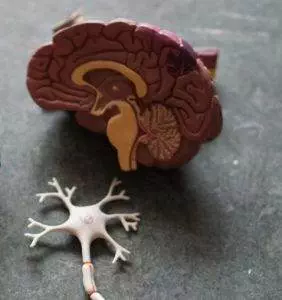
Bell’s palsy occurs due to a compromisation of the 7th cranial nerve, also known as “CN7” or the “facial nerve,” which originates in the center of the skull and has five branches that extend out into all of the areas of the face: around the eyes, nose, mouth, and chin. This nerve controls communications between the brain and the facial muscles, including the tongue, and therefore controls our ability to make facial expressions, as well as being involved in tasting, chewing, and breathing. When tissues surrounding CN7 become inflamed, perhaps due to a lingering infection, it may lose some or all of its functionality due to a lack of blood flow. Viral infections that can cause swelling, or edema, in the parts of the head that affect the facial nerve include:
- Herpes zoster
- Herpes simplex
- Adenovirus
- Cytomegalovirus
- Epstein Barr
- Mumps
- Rubella
- Influenza
Diabetes, Lyme Disease, and the inflammatory disorder Sarcoidosis can also cause the sort of swelling and compression that lead to facial nerve palsy. Scientists believe that Bell’s palsy is caused in part by neurodegeneration, or damage to neurons, somewhat similar to ALS. TCM and acupuncture have been shown in clinical research to help regenerate neurons and promote the repair, growth and development of new nerve cells.
Top 10 Signs and Symptoms of Bell’s Palsy
In Bell’s Palsy, inflammation of the 7th cranial nerve causes a loss of muscle control in part of the face. If this happens to you or someone you know, first review the FAST Stroke test guidelines, to quickly assess whether or not the facial paralysis may be due to a stroke. If no other signs of stroke are present, consider whether there are signs of Bell’s palsy:
- Facial weakness or facial paralysis, affecting part or all of the face, most often face droops on one side, sometimes the lower half of the the face drooping
- Low grade fever
- Headache
- Pain behind the ear on the affected side
- Stiff neck
- Inability to close one eye
- Drooling
- Loss of sense of taste
- Heightened sensitivity to sounds on one side
- Dizziness
Occasionally, there may be pain from the swollen facial nerve. More often, though, Bell’s palsy does not cause intense pain. Pain in the face and jaw muscles is more commonly caused by Trigeminal Neuralgia, a more severe and chronic condition related to irritation or inflammation of the trigeminal nerve, which communicates messages of sensation from the face to the brain.
Medical diagnosis for Bell’s palsy will first focus on ruling out other, more serious causes of facial paralysis, like stroke. Then doctors will check for viral infections or undiagnosed diabetes, and administer an EMG, CT, or MRI to assess nerve damage.
How Does Acupuncture Treat Bell’s Palsy?

In TCM theory, we attribute health conditions to the effects of internal and/or external pathogenic forces working on the body. Bell’s palsy is considered to be the result of an invasion of wind and cold that blocks Qi (life force energy) and blood from moving through the head and face the way they normally do. Wei Qi is a specific form of energy that protects us from external pathogens, but if Wei Qi is weak (maybe due to stress, exhaustion, cold air blows directly on face, or recent illness), it can be dispersed by a strong invasion of Wind, allowing Cold to enter the head and slow things down.
This is an instance when an acupuncturist may choose to use electro acupuncture technique. Electroacupuncture uses fine needles inserted into the skin at specific points along the meridians, which are then attached to a small machine that produces an electrical impulse, so that an electrical current passes between the needles. The current of electricity is not actually entering the body, and the patient will only feel a small pulsing sensation or vibration at the site of the needles being stimulated. The muscles affected might twitch a little. This technique is sometimes called “electro stim,” and it has really only been developed in the past century, although it is still based on the same fundamental concepts of Qi that have been used in TCM for many hundreds of years. Electro acupuncture offers the advantage of being able to stimulate a point in a way that is deeper and wider than with a needle alone. We will often use electro stim acupuncture when dealing with neurological disorders. In the case of Bell’s palsy, the goal is to bring blood flow, Qi, and healing to the cranial nerve root and branches that control the facial muscles.
In some cases, Bell’s palsy does not completely resolve itself, and people are left with long-term effects. Weakness of the facial muscles that negatively impacts a person’s eating mechanisms or causes them to be unable to express themselves naturally with their facial muscles can have a real impact on quality of life and the ability to enjoy social interactions.
One study sought to test the efficacy of acupuncture treatment on patients who had been diagnosed with Bell’s palsy at least six month prior, and who were still affected by it. After several weeks of acupuncture treatment, patients reported less stiffness in the face and improved symmetry of facial features.
People who have suffered from Bell’s palsy at some point are at higher risk overall for having a stroke. One retrospective study concluded that patients who received acupuncture and TCM treatment regularly were less likely to have a stroke later on than those who didn’t.
A review of controlled trials studying acupuncture treatment versus drug therapy for Bell’s palsy showed an overall higher effective rate for the groups being treated with acupuncture.
Acupuncture Near Me for Bell’s Palsy
While Bell’s palsy is a relatively mild form of neuropathy that does often resolve itself in time, it is recommended that people do seek treatment for this condition as soon as possible. Losing muscular control of the facial muscles affects your day to day life and interactions with other people, and getting treatment can help the situation improve more quickly. With Bell’s palsy, it is important to make sure that the inflammation of the 7th cranial nerve is reduced and that whatever underlying conditions that may have contributed to the facial paralysis are taken care of, too. Otherwise, people who have had Bell’s palsy once have the potential to experience it again in the future.
*This article is for education from the perspective of Traditional Chinese Medicine only. The education provided by this article is not approved by FDA to diagnose, prevent, treat and cure human diseases. It should not stop you from consulting with your physician for your medical conditions. Traditional Chinese Medicine is based on Qi, which is an invisible force that usually cannot be observed by modern science. Because science focuses on testing ideas about the natural world with evidence obtained through observation, these aspects of acupuncture can’t be studied by science. Therefore acupuncture and Chinese herbs are often not supported by double-blind, randomized trials, and they are considered alternative medicine therapies in the United States.
How to Treat Gout With Acupuncture and TCM
By Qineng Tan, L.Ac., Ph.D. & Xiaomei Cai, L.Ac., Ph.D.
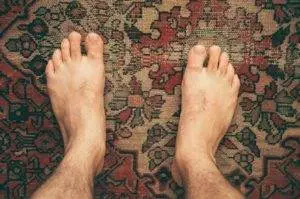
Sudden, intense pain and swelling in the big toe? Foot, ankle, knee, or elbow is red, hot, swollen and very painful? It may be a type of arthritis called gout that is caused by unusually high uric acid levels in the body. TCM methods have been used to effectively manage gout with acupuncture and herbs for thousands of years.
Gout, sometimes called gouty arthritis, is a kind of arthritis that develops over time due to other underlying conditions. When there is a sudden flare-up that creates a lot of pain and swelling in a joint, it is called an acute attack of gout. Gout is almost always related to a person’s diet and lifestyle, and part of any treatment plan is reducing intake of beverages and foods that cause gout.
Conventional treatment for gout involves first allowing the acute attack to subside, then using medications and monitoring to bring down high uric acid levels. Acupuncture and TCM have been shown in clinical studies to be even more effective at providing immediate gout pain relief and bringing down uric acid levels than typical drug therapies.
What Is Gout?
Gout is a very painful form of inflammatory arthritis caused by the buildup of uric acid crystals in a joint, often the big toe joint. Uric acid is formed as a byproduct of digestion; when the body breaks down purines–chemicals in certain foods–the resulting uric acid is processed by the kidneys and leaves the body in liquid waste. If too much uric acid is being produced, or if the kidneys are weak and unable to process it adequately, the level of uric acid in the bloodstream rises (hyperuricemia), and deposits of uric acid crystals begin to gather in the joints. These crystals have sharp edges, which are what cause the severe pain and swelling of a gout attack.
While older men are generally at higher risk for developing gout, gout can affect people of all ages and genders. Women are more likely to develop gout after menopause, when their uric acid levels tend to rise. People who are high risk for gout are those who already suffer from:
- Obesity
- Diabetes
- Heart failure
- High blood pressure
- Kidney disease
People who have a family history of gout, or who tend to eat a lot of meat and/or drink a lot of alcohol also face a higher risk for gout. Regular use of diuretics can precede attacks of gout.
The symptoms of gout can be very similar to those of other types of arthritis, but gout causes are different than those of rheumatoid arthritis. Thus is it important to seek help from your health care providers for diagnosing rheumatoid arthritis versus gout.
Top 5 Signs and Symptoms of Gout
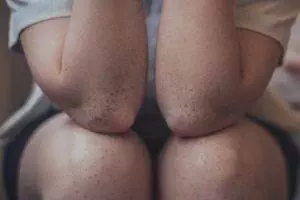
The underlying condition that causes gout is related to the kidneys, but the actual experience of gout is a form of acute inflammation, usually in one of the smaller joints of the limbs or extremities– most often there is gout in feet, especially the big toe joint. A person may have hyperuricemia for a long time, causing uric acid buildup in the body, but it doesn’t actually become “gout” until there is a flare-up of painful symptoms. The signs of a gout attack are:
- Intense pain in a joint (gout in big toe, gout in foot, gout in ankle, gout in hands, heel pain are all common)
- Redness
- Swelling
- Tenderness to even a slight touch
- Hot to the touch
Diagnostics for gouty arthritis include blood tests to check for uric acid levels, or extraction of fluids from the joint to check for uric acid crystals. Signs of gout in the joint may also show up in x-rays, or in an ultrasound or CT scan.
What is the Medical Treatment for Gout?
There are two components to conventional medical gout treatment: treatment for immediate gout pain relief, to reduce the pain and swelling of an acute attack of gout, and treatment to prevent a future gout attack by reducing the levels of uric acid in the blood.
For pain and swelling, most patients with gout are recommended NSAIDS for pain relief. People who cannot take NSAIDS due to stomach ulcers or kidney problems are often given corticosteroid injections in the affected joint. Many patients are also prescribed a drug called colchicine, which works by disrupting a specific inflammatory response in the body, which can help to reduce the formation of uric acid crystals. The rate of colchicine side effects such as nausea, vomiting, diarrhea, and stomach pain is fairly high.
To stabilize blood uric acid levels, there are medications that block the production of uric acid (Lopurin, Zyloprim, Uloric) and medications that break down and/or remove uric acid (Benemid, Zurampic, Krystexxa). These medications have to be carefully managed according to changes in uric acid formation and kidney function, as well as possible interactions with other medications. Many people who have gout also have heart problems or high blood pressure. This type of medical treatment for preventing and controlling gout often goes on for years, or even for the rest of a person’s life. Unfortunately, because it can be so difficult for both doctor and patient to keep up with monitoring, taking medication consistently, and changing dosages frequently, this sort of medical treatment often doesn’t work to prevent more gout attacks.
Can Acupuncture Help Gout?
TCM theory designates several internal pathogenic processes that can occur within the organ systems. TCM views gout as a problem of dampness and heat, and/or stagnation and buildup of phlegm in the joints. As we mentioned earlier, many, if not most, people who suffer from gout also have other health problems like hypertension or diabetes. So, the TCM provider is also looking at the root causes of those health issues and will treat those with acupuncture and herbs at the same time. The goal of acupuncture and herb supplementation is always to bring the all of the organ systems back into harmony. TCM herbs to help gout will work to strengthen the spleen, kidneys, and liver, clear heat and dampness, and improve blood circulation.
A systematic review of studies relating to TCM treatment of gout with acupuncture showed that patients receiving acupuncture and herbs fared better overall than those in the control group being given typical medical therapy. The studies measured the “resolution” of an attack of gout; meaning, whether or not the pain and swelling was completely reduced within a 24-hour period. They also measured the reduction of uric acid levels in the blood before and after treatment. According to both measures, patients who received TCM treatment for gout had better results than those taking western medicines like colchicine or allopurinol.
A controlled clinical trial conducted at a research hospital showed a 92.5% efficacy rate for treating an acute gout attack, versus an 82.5% efficacy rate for patients who were given NSAIDS to treat the pain.
Top 5 Home Remedies for Gout According to TCM

First and foremost, it is necessary to plan and follow through on an appropriate gout diet: knowing what foods to avoid with gout is vital to prevent future attacks.
- Avoid Foods that cause Gout – foods that are high in purines include red meat, organ meats, seafood and alcoholic beverages, including beer, wine, and liquors. Risk for gout rises dramatically when people drink 2-4 or more alcoholic beverages per day. This may be because the body has to prioritize processing the alcohol over removing uric acid.
- Avoid sugar – Especially sugary drinks like sodas, and sweetened juices. Fructose appears to be particularly linked to higher incidence of gout, so read labels and avoid products sweetened with fructose or high fructose corn syrup.
- Avoid refined flours and yeast – the combination of yeast, white flour, and white sugar does not provide much nutritional value, and can raise uric acid levels.
- Emphasize whole, natural foods – all fruits, vegetables, and legumes are safe to eat with gout. Eggs and low-fat dairy products are safe sources of protein.
- Drink more water – this helps your body to more effectively flush out excess uric acid.
Exercising more and working on healthy, gradual weight loss will also help to prevent future gout attacks. Your acupuncturist can help you to develop a specific gout diet that will work for your constitution.
Acupuncture Near Me for Gout
While treating gout can be tricky due to the fact that it is usually not the only health issue that needs attention, the good news is that gout is one of the few types of arthritis that can be reversed. A holistic approach that takes into consideration a person’s diet, lifestyle, and other health problems is the best way to keep the intense pain of gout at bay. Acupuncture and TCM offer a solid alternative treatment method that can relieve gout and improve your overall health, all without unwanted side effects.
*This article is for education from the perspective of Traditional Chinese Medicine only. The education provided by this article is not approved by FDA to diagnose, prevent, treat and cure human diseases. It should not stop you from consulting with your physician for your medical conditions. Traditional Chinese Medicine is based on Qi, which is an invisible force that usually cannot be observed by modern science. Because science focuses on testing ideas about the natural world with evidence obtained through observation, these aspects of acupuncture can’t be studied by science. Therefore acupuncture and Chinese herbs are often not supported by double-blind, randomized trials, and they are considered alternative medicine therapies in the United States.